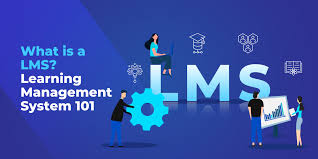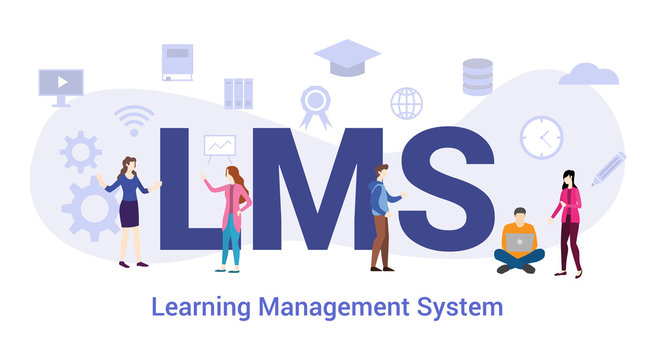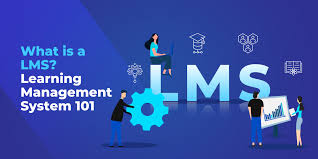Important Tips to Improve LMS Course Completion Rates
Wed, 10 Apr 2024

Follow the stories of academics and their research expeditions

An LMS is a software application that enables organisations to manage, deliver, and track their training programs. It allows organisations to create and deliver training content to learners, monitor their progress, and generate reports on performance. LMSs can deliver various types of training, including onboarding, compliance, sales and skills training, as well as product training.
Related resource: What are the Benefits of a Learning Management System (LMS)?
The best LMSs will provide numerous benefits for you and your channel partners, including:
The best LMS for partner training offers vendors an additional touchpoint for communication between them and their partners. They can send notifications, reminders, and feedback on training progress, making the learning process more engaging and interactive, while also increasing communication levels between both parties.
An LMS can help improve product knowledge by providing access to training materials and resources that are tailored to your partner’s needs. This will help them to onboard quickly and efficiently, stay up-to-date on the latest product developments and better serve customers.
By empowering partners with the knowledge and skills they need to sell more effectively, an LMS can help drive business growth and success. Training enables partners to sell better and offer a higher level of service to their customers, which all leads to increased revenue and fulfilled partnerships.
LMSs make training more accessible to partners by allowing them to access training content anytime, anywhere, and from any device. This feature is particularly beneficial for partners who work remotely or have busy schedules.
LMSs are a cost-effective solution for partner training as they eliminate the need for in-person training sessions, which can be expensive and time-consuming. While the best LMS for partner training will require an initial investment, the long-term effects of your channel partners’ expertise in selling your products or services will be much more lucrative for you both.
LMSs provide a standardised training experience for partners, ensuring that all learners receive the same quality of training.
LMSs enable trainers to track the progress of their partners and generate reports on their performance. This data can be used to identify areas of improvement and optimise training programs. Monitoring tools also allow you to track customer interactions and preferences, identify areas for improvement and deliver targeted training that addresses specific needs.
Related resource: How training benefits your partner program
When choosing an LMS for partner training, there are several factors you need to consider. These include:
Different LMSs are designed to handle different types of training. For partner training, you need an LMS that can support interactive training, assessments, and quizzes. Look for an LMS that has features like gamification, video support, and social learning.
The best LMS for partner training is one that can scale as your partner network grows. The LMS should be able to accommodate an increasing number of learners without compromising on performance.
A learning management system should be easy to use for both trainers and learners in order to be effective. The interface should be intuitive, and the learning materials should be easy to access.
Customisation is an important aspect of any good learning management system. The LMS and training material should be able to be fully branded to encourage trust, and foster brand recognition and continuity.
The top partner training LMSs have robust reporting and analytics features which help you to understand what features are working and where improvement is needed. The LMS should be able to generate reports on partner progress, assessment scores, and completion rates.
You should choose an LMS that integrates with other systems that you use, such as a CRM or a marketing automation tool. Integration makes it easier to automate tasks, such as sending training reminders or updating partner records.
The best LMS for partner training will also have ongoing management included so that you can be sure your chosen LMS consistently delivers engaging content that maximises your ROI without you needing to invest more time or internal resources.
LMS users and learners need varying levels of support, from developing learner pathways to password reminders. Without it, they can become demotivated, damaging confidence in your brand. Some LMS vendors claim to include support, but the level of support is not high enough for channel partners working externally. The best choice is to choose a vendor that offers multi-channel, multi-lingual support to ensure the needs of your channel partners are met.
Choosing the best LMS for partner training can be a daunting task because you want to ensure you are getting a program that is worth your investment. Here are five steps to help you make the right decision:
Start by identifying your training needs. What type of training do you want to offer? What are the goals of your training program? What are the learning outcomes you want to achieve?
Define your budget for an LMS. How much can you afford to spend on an LMS? What pricing model makes the most sense for your business? Where budget constraints are tight, consider whether you can charge for some or all of your training, to create a revenue stream. You’d be surprised how willing your partners will be to invest in valuable training.
Analyse the features and functionality of the LMSs you are considering. Look for an LMS that has the features you need to achieve your training goals. Consider features like interactive training, assessments, reporting, and analytics.
Consider the other systems you use, such as CRM, HR software, partner portals, and marketing automation tools, and check how your chosen LMS can be integrated with these. Single Sign On (SSO) can also be utilised.
Review customer support and user feedback for the LMSs you are considering. Look for an LMS that offers excellent customer support and has positive user feedback.
Once you have completed the first four steps, make a decision on the LMS that best meets your training needs, budget, and functionality requirements.
Partner training is a critical aspect of business growth, and choosing the best LMS for partner training can make the training process more efficient and effective.
As well as improving your channel partners’ abilities to sell your products or services, the training data gathered by the LMS will offer valuable insight into partner behavior, allowing you to better tailor future training plans and foster more effective long-term relationships with your partners.
To choose the best LMS for partner training, consider factors like type of training, scalability, user-friendliness, reporting and analytics, integration, and pricing. By following the steps outlined in this article, you can make an informed decision on the LMS that best meets your training needs.
Wed, 10 Apr 2024

Tue, 09 Apr 2024

Tue, 09 Apr 2024

Leave a comment